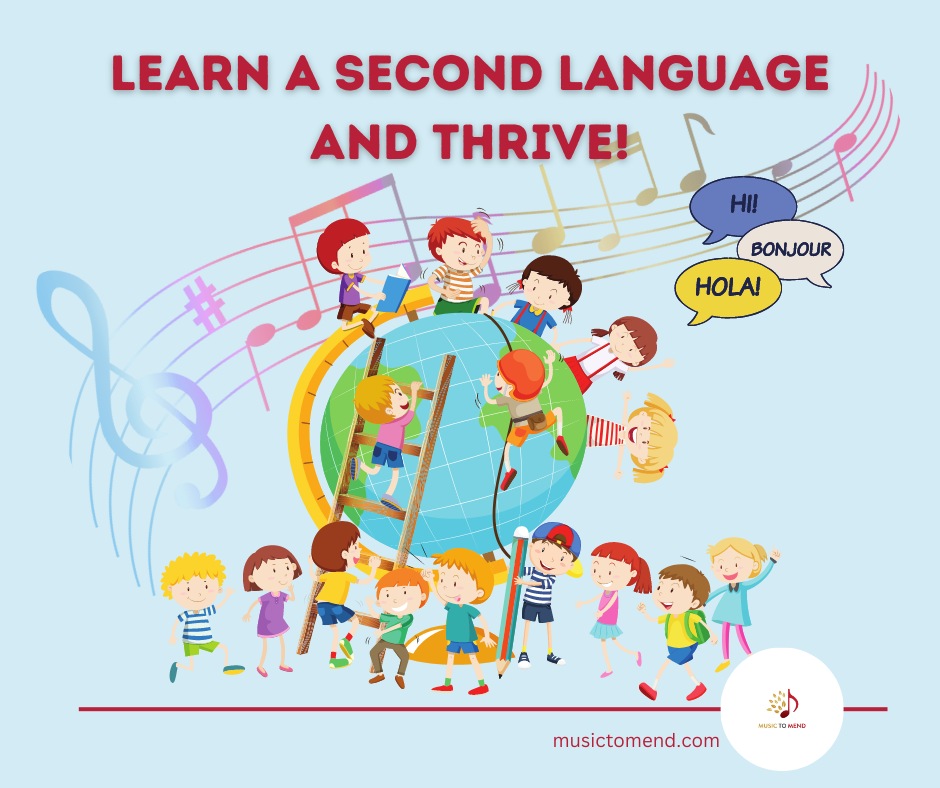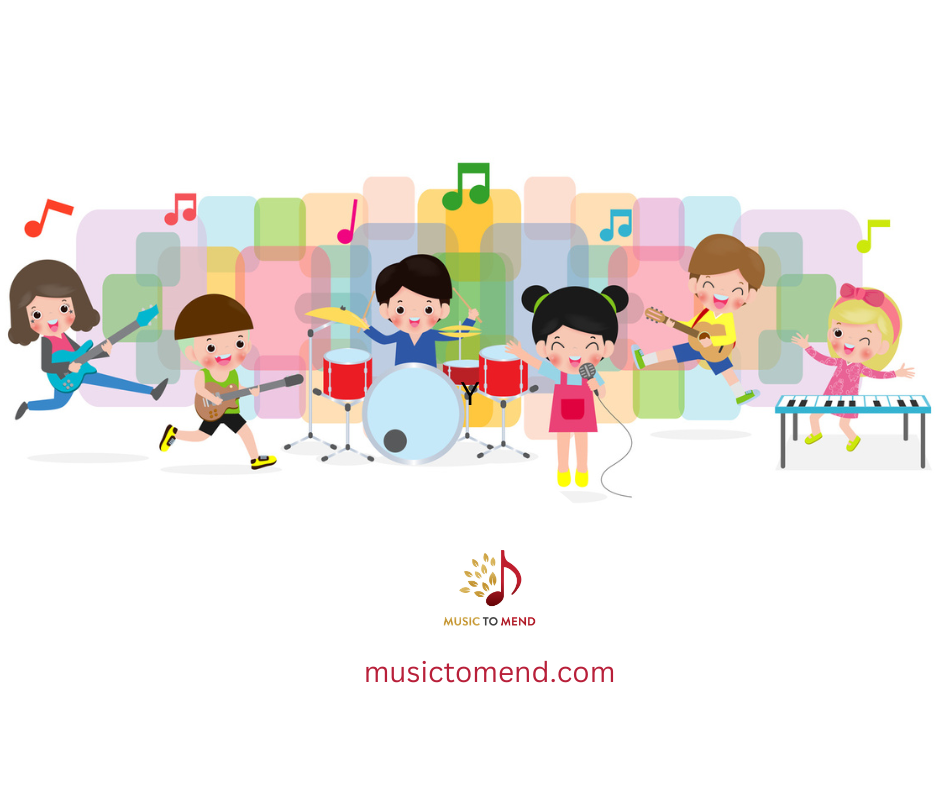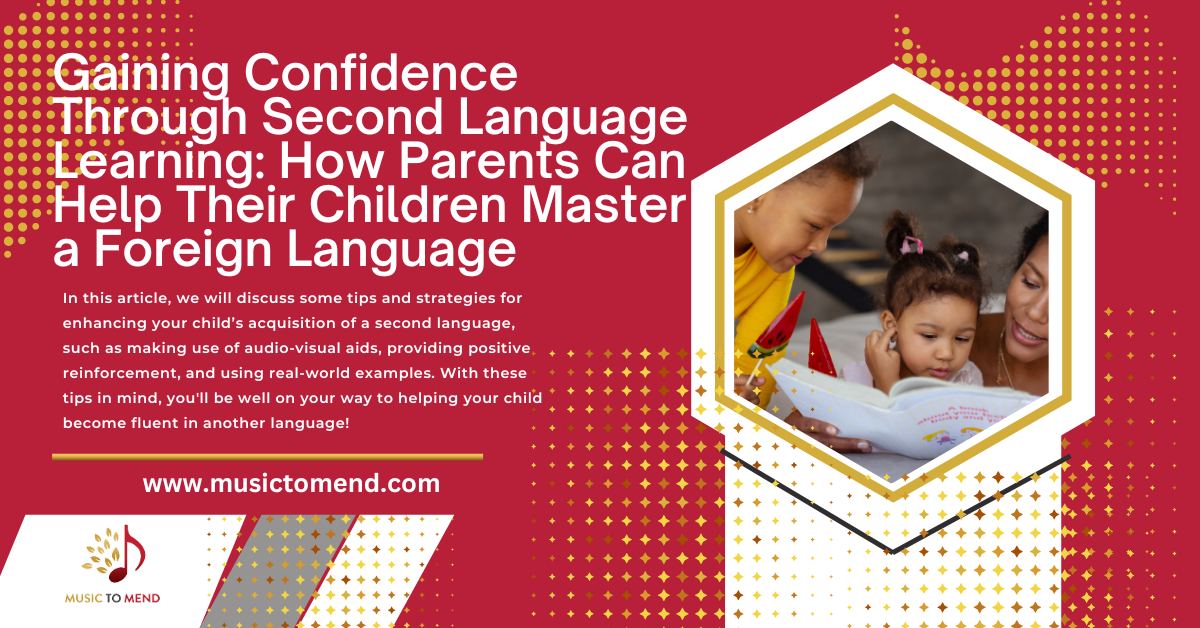Gaining Confidence Through Second Language Learning: How Parents Can Help Their Children Master a Foreign Language

Benefits of Learning a Second Language and How it Helps Boost Confidence
In this article, we will discuss some tips and strategies for enhancing your child’s acquisition of a second language, such as making use of audio-visual aids, providing positive reinforcement, and using real-world examples. With these tips in mind, you’ll be well on your way to helping your child become fluent in another language! Learning a second language can be an incredibly rewarding experience. It can help open up new doors and opportunities and provide a sense of accomplishment and confidence. Being able to communicate in another language can be a great asset in both personal and professional life. As someone who grew up in a bilingual household, I was too young to grasp that I was actually “learning” a second language. Listening to my grandparents, parents, aunts, and uncles speak Spanish while I learned English in an American school, simply came naturally and organically.
Learning a foreign language also has many other benefits, such as improved cognitive abilities, increased cultural understanding, enhanced problem-solving skills, and better job prospects. It can also help to boost confidence by providing an opportunity to practice communication in a new setting and gain more knowledge about the world around us.
How Can Parents Support Their Child’s Journey to Becoming Bilingual?
Raising a bilingual child is an exciting journey for both parents and children. It opens up many opportunities and provides numerous benefits, such as improved cognitive skills, increased cultural awareness and better job prospects.
Parents can play a crucial role in supporting their child’s journey to becoming bilingual. This includes enrolling them in language classes, exposing them to different cultures, providing language learning materials at home, and encouraging them to practice their language skills with friends and family members. They should also ensure that the child is given enough time to rest and enjoy other activities. Children can easily become bilingual or even multilingual with the right kind of support from parents!
Tips & Strategies for Enhancing Your Child’s Acquisition of a Second Language
Learning a second language is an important skill for children to learn. It can open up new opportunities and broaden their horizons. But teaching your child a new language can be challenging, especially if you are learning it yourself as an adult. That’s why it’s important to have strategies in place that will help your child learn the language quickly and effectively. Many people are using online platforms and apps to support their second language learning. Online language courses for kids and online resources for second language learners are ways people are integrating technology to support learning. With an online course, students can access materials anytime while doing other activities like homework or watching TV. This allows students to take breaks from lessons during those times when they feel most productive while allowing teachers to track their progress.
How to Use Music Effectively For Language Learning
Music can be a powerful tool for language learners. With the right songs and the right approach, you can learn a language faster, retain more of what you learn, and have fun doing it.
Using music for language learning is not just about listening to songs in your target language. It also involves understanding lyrics and singing along with them. This method of learning allows you to practice pronunciation, vocabulary, grammar, and even cultural references. It also helps build confidence by allowing learners to express themselves creatively in their target language.
What is the Link Between Being a Happy Child and Becoming a Confident Adult?
It is widely accepted that the early life experiences of a child can have a lasting impact on their development and future. Research has shown that having a happy childhood can lead to becoming a confident adult. Positive childhood experiences, such as spending time with family, engaging in activities and having positive relationships, can all contribute to building confidence in adulthood.
In summary, self-confidence is an important factor in the mental health of adults. The belief in one’s abilities and capabilities allows us to take risks and make decisions confidently. Having a healthy level of self-confidence can help us be more successful in our lives, giving us the courage to take on new challenges and pursue our goals. It also helps us to develop a positive attitude towards ourselves, which leads to better mental health and well-being.

ES_A-Celtic-Blessing-Bonnie-Grace







